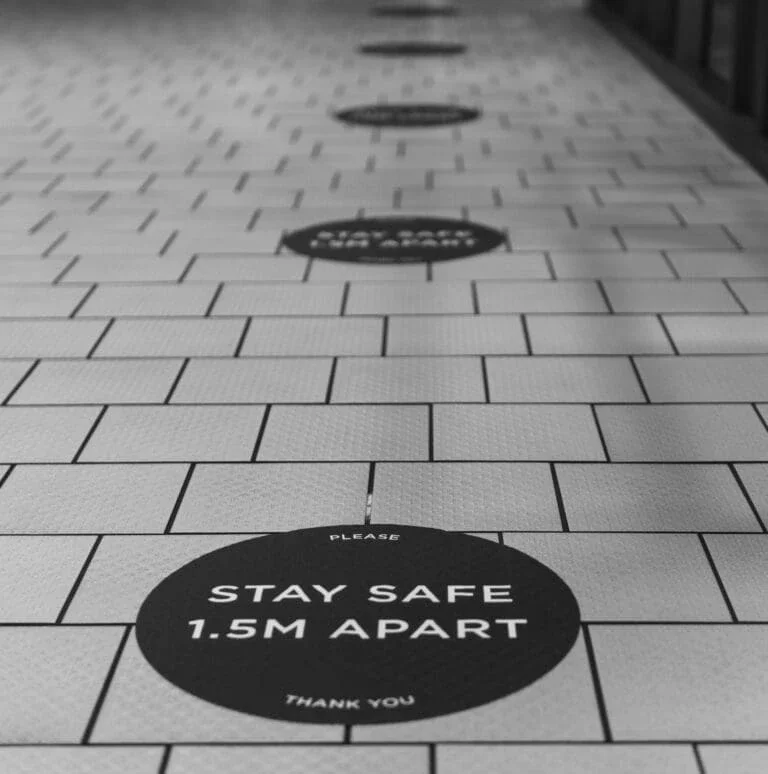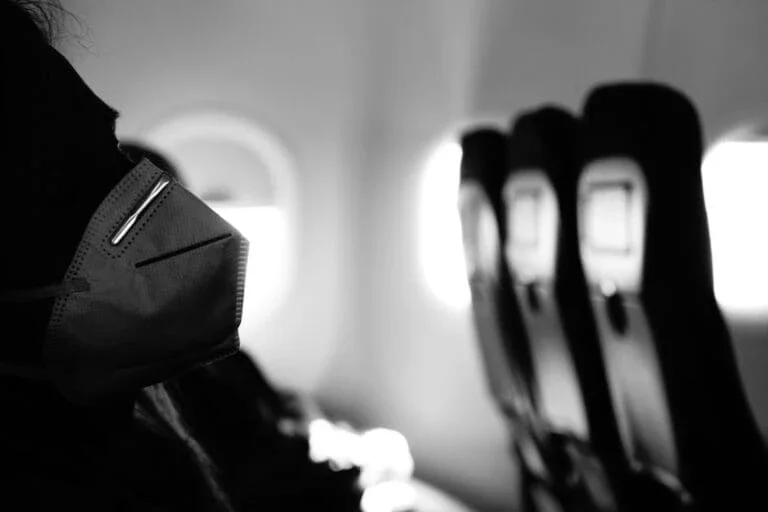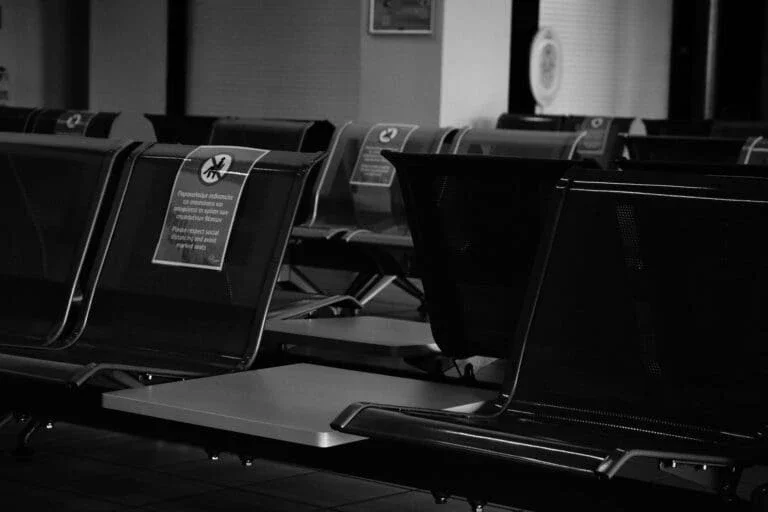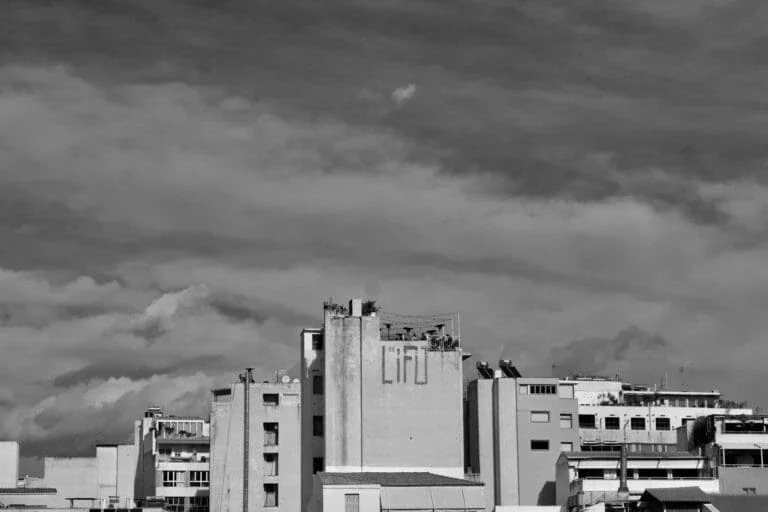Six months ago, traveling to another country required little more than a ticket and a valid passport. Then the Covid-19 pandemic turned international travel, and most parts of life, upside down. As the virus spread, flights were cancelled. Airports emptied out. The movement of people across and within borders slowed or even stopped completely.
Today, traveling abroad is much more complicated. It now comes with a serious risk – not only to travelers but also the population at their destination – that is, if you’re allowed to travel in the first place.
Many countries have closed their borders to foreigners or introduced mandatory testing and quarantines to limit the spread of Covid-19. Airlines followed suit, introducing new policies such as wearing face masks to keep passengers and crew safe. The travel industry, and the traveling experience, have changed radically in the last six months. Even as countries ease restrictions, many of these new norms are likely to remain even after a Covid-19 vaccine becomes universally available. That means if we want to travel by air, we have to adapt.
As a public health physician and Managing Director of Health at The Rockefeller Foundation, I understand the impact of the pandemic all too well. But it wasn’t until I recently traveled to Ghana that the reality of this “new normal” truly set in. From wearing a face shield on the flight to mandatory supervised quarantine in a hotel upon arrival, traveling was cumbersome and anxiety-provoking. My journey offers a glimpse into how countries are taking steps to protect citizens while reopening their borders, and what the future of international travel may hold.
Preparing for Take Off
Not just anyone can go to Ghana in this Covid-19 era. Like most countries, Ghana closed its borders to passenger travel in March soon after the pandemic was declared. Only flights that are specially-arranged for citizens and emergency personnel have been allowed to enter the country since then. I had to submit proof of Ghanaian citizenship before I could purchase a ticket on this specially arranged Ethiopian Airlines flight out of Newark Airport. This was followed by proof of payment of a 14-day reservation at one of five hotels in Accra that had been approved by the government of Ghana for mandatory Covid-19 quarantine. Only then was my seat on the flight confirmed.

Several countries haven’t placed blanket restrictions on non-citizens, but instead focused restrictions on citizens of countries with high Covid-19 prevalence. Notably, the European Union has currently barred American citizens from nonessential travel. These policies aim to reduce the chance that the disease is introduced to a country where it has been suppressed. Some nations haven’t introduced restrictions at all.
Jamaica, for example, allows entry of non-citizen tourists who have a negative Covid-19 diagnostic (PCR) test within three days of departure. However, current lags in testing turnaround times in the US would cause most people to miss their flight.
Meanwhile, Germany instituted a requirement for mandatory Covid-19 testing at international airports upon arrival only to reconsider it after a few weeks due to the strain on testing capacity. Neither of these rules offer 100% guarantees of protection for the citizens of the destination country, as the test may not detect recent infections in people who are not yet symptomatic. But with faster, cheaper and more accurate tests, these rules could lay the path to a safer and smoother travel experience in the future.
Loss of Physical Distancing
Once you have a plane ticket and a hotel reservation for quarantine, it’s time to prepare for the airport. First up: protective gear. Many airlines now require passengers to wear masks or face coverings in boarding areas and on the plane, as maintaining physical distancing is impossible even if you have an empty seat between you and the next passenger. Plus, once you are in an enclosed indoor space for prolonged hours (e.g., a flight) masks are the best protection. Some airlines are taking temperatures before boarding, even though this is a rather weak screening tool as recent evidence shows fewer than 50% of people with Covid-19 present with a fever. Personal protective equipment is your best bet.

I wore a face shield in addition to a KN95 medical-grade mask and kept both on for the entirety of my flight – all 11+ hours. The face shield acts as both a physical barrier to respiratory droplets and a helpful reminder not to touch your face. Before I settled into my seat, I wiped down all metal and plastic surfaces within reach liberally with disinfectant wipes. I placed the soiled wipes in a zip-locked bag for disposal at my destination. I then sanitized my hands and kept them on my lap for the rest of the flight. The flight seemed to be about 60-70% full and I was lucky enough to have an empty seat between me and the next person, providing a little more psychological comfort.
When meals were served and others de-masked to eat, I passed on the foil-wrapped food and kept my mask and shield on. Removing my mask wasn’t a risk I was willing to take for airplane food. The only time my mask came off was for a gulp of water half-way through the flight when my throat was parched. I figured I would make up for the dehydration once we landed in Accra.
But meal times were not the most anxiety-provoking experiences for me. It was observing fellow passengers with their masks balancing haphazardly below their noses and long conversations where I could imagine virus-laden droplets being released into the air. Another source of stress was seeing a few passengers wearing masks with the release vents which defeat the purpose of protecting the public from a potentially infected wearer. I truly appreciated the flight attendants reminding people to wear their masks properly, a tough job especially in settings where masks have been politicized. Luckily, I am one of those people who sleeps easily on flights, so the anxiety did not last that long.
Airport Safety Procedures
Upon disembarking in Accra, my fellow passengers and I were welcomed and immediately steered towards a hand sanitizer dispenser. We were obliged to use it while a uniformed airport agent watched. Then, we were all given fresh surgical masks to wear regardless of when you last changed your mask. Disposable ones were thrown away in a trash can next to the hand sanitizer dispenser and reusable or cloth face coverings had to be put away in our luggage. At every stage, we were guided through lines that were marked with social distancing signs by polite but firm airport agents. Most people cleared through the ThermoScan machine just like the temperature screen at Newark Airport which did not appear to detect anybody with a fever.

Face masks represent a big challenge for people who are tasked to confirm our identity at airports. The Transportation Security Authority (TSA) agents in Newark and the Ghana Immigration Service (GIS) officials asked passengers to pull down their masks for a few seconds so they could match our faces with our passport photos. I held my breath each time to protect them. One pleasant surprise was that the GIS official didn’t require a fingerprint scan on the machine with the glass surface that hundreds of people touch every day – one less virus transmission risk to worry about.
After getting our passports stamped, we were asked to sit in physically distant groups according to the hotel we had selected for quarantine. We proceeded to baggage claim in our designated groups to minimize crowding at the luggage carousels. The entire process from immigration to boarding our hotel shuttle took over two hours. An inconvenience, but in the name of safety and public health – a tradeoff many travelers will have to get used to during the pandemic.
As if we needed one more reminder of our “new normal”, the final step before we boarded the hotel shuttles was a table where we were presented with a complimentary reusable mask courtesy of the Ghanaian government. Wow!
Quarantine
At the hotel, we were greeted with another hand sanitizer dispenser which we had to use before checking in. Hotel staff gave us a hot meal in disposable containers with several bottles of water and encouraged us to eat it in our rooms. In my hotel room, in addition to the usual complimentary toiletries I found another complimentary face mask and hand sanitizer from the hotel.

Quarantine was not fun. We were confined to our rooms 24/7 and could only leave to get tested for Covid-19 in one of the hotel’s meeting rooms. Taking a walk on the grounds of the hotel was strictly forbidden as there apparently had been instances of people trying to flee from quarantine in the past. Friendly but vigilant national security agents monitored the hotel exits to ensure that quarantined guests did not attempt to leave, and all meals were delivered to our rooms. If anyone tested positive, they were moved to an isolation center or hospital if needed so they could be monitored by clinically-trained staff. We were free to call for medical help at any point if we felt sick.
The first week was tolerable as I was recovering from jetlag and catching up on work which I was doing remotely, thanks to free Wi-Fi. However, by day 10 I felt restless and sluggish from insufficient activity and the monotony of the schedule. Vegetarian options on the fixed menu were few and far between so I made peace with the carbohydrate overload, which the kitchen staff gave me I think as compensation for the lack of meat on my plate.
Because we were in quarantine, the hotel staff couldn’t come into our rooms to clean for their own safety. However, upon request they brought us cleaning supplies, vacuum cleaners, and anything else we needed to be comfortable. We were instructed to leave our trash and dirty linens outside the door to be picked up by staff wearing the appropriate protective gear. All the staff who brought meals and other supplies to our rooms were wearing masks, branded with the hotel’s logo, pulled up securely above their noses. All in all, I was very impressed with the hotel’s health and safety measures.
‘Safe’ to Enter Society
Leaving quarantine may not be as straightforward as walking out the hotel once your 14 days are up. Due to a potential delay in detection, some countries require a second negative Covid-19 diagnostic test before people can leave quarantine – which could come with its own delays due to backlogs in processing tests.
Each country has different protocols around quarantine. Some allow travelers to self-quarantine if they agree to monitor their temperatures or download a contact tracing app upon arrival. Others warn arriving travelers that violating quarantine can result in fines or even deportation. However, enforcement is variable across jurisdictions so it is unclear how effective these rules will be.
Spread of infections by people who are asymptomatic (i.e., don’t feel sick) or pre-symptomatic (i.e., a few days before they start feeling sick) is going to be the Achilles heel for border control efforts. How far are governments willing to go to reduce this risk while minimizing disruption in commercial activities which are critical to economic recovery? This is an area likely to undergo a lot of rapid innovation, testing and iteration over the next few months. The Rockefeller Foundation will be keeping a close eye on this space and will be providing as much support as we can.
Looking Forward
Overall, the experience of traveling is fraught with many more rules, restrictions, and health anxiety than it was before the Covid-19 pandemic. Instead of sleeping masks and earplugs, we now must think about face masks and shields. Wearing a face mask, especially on a long flight, isn’t exactly the picture of comfort – but if doctors can wear masks for 12+ hours while standing and performing complex surgeries, travelers can certainly wear them on a plane.
Besides, this isn’t the first time travelers have had to adapt to new norms. Society has done this before.
After 9/11, airline passengers were required to be screened through metal detectors at airports. And after the “shoe-bomber” scare later that year, air travelers all over the world suddenly had to remove their shoes to be scanned before boarding flights. There was even a time when smoking cigarettes on airplanes was allowed but by the late 1990s, most airlines had banned them for the safety of passengers and crew.
It’s far from clear which of these Covid-era safety measures will stick and which are likely to be a passing phase, but in the short term Covid-19 is reshaping international travel and will do so for the foreseeable future.
Author’s note: On September 1, Ghana opened its international airport to passenger traffic after more than 5 months of closure. The country’s travel policies have since changed – supervised mandatory quarantine has now been replaced with a pre-boarding requirement of a negative Covid-19 test 72 hours before departure and rapid diagnostic testing upon arrival. Land and sea borders remain closed to passenger traffic.